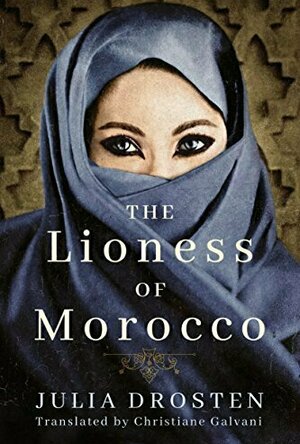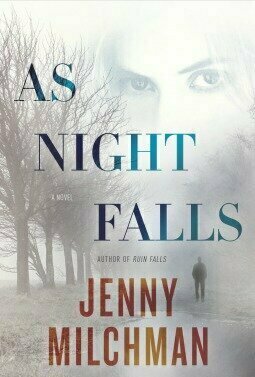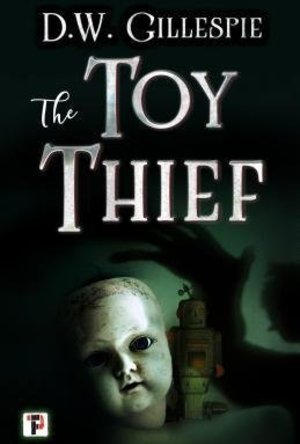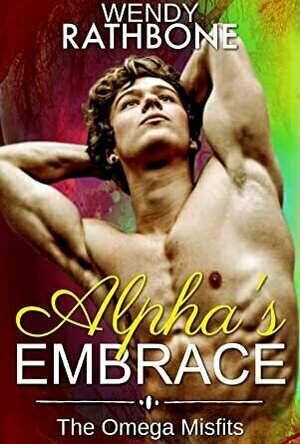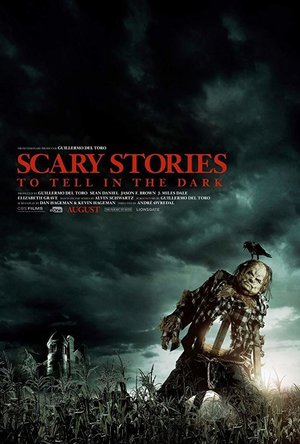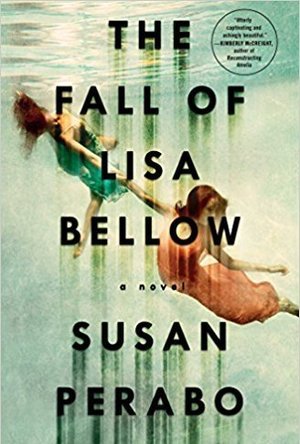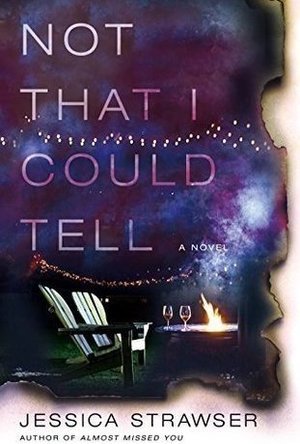Search
Search results
BookInspector (124 KP) rated The Lioness of Morocco in Books
Sep 24, 2020
This is a mesmerising story of 2 generation’s lives between London and Mogador, Morocco. The first part tells and incredible story of Sibylla, and her journey through life in new country with new beliefs and traditions. Also, her adjustment and fight for what life throws at her. Life doesn’t really spare her. The relationship with her husband lacks love and understanding, so when handsome acquaintance comes along and sweeps of her feet, she thinks, she finds her love again. But it would be too perfect, and let’s not forget, the plot of this story is happening in Morocco. The second part is more about Sibylla’s children and their way through life. Both parts are very well combined together and make an incredible story of adjustment, love, betrayal. The characters of this book are very diverse, and there is huge variety to choose from in this publication. I always admire strong women characters, who take charge in difficult situations. Sibylla is like that, strong, ambitious and she doesn’t give up easily.
I love reading about different countries and cultures, that’s why all the information about harems was very mesmerising and exotic to me. I loved to see, how women treated each other and their surrounding in Arab country in 19th century. The writing style used in this book was not very easy for me, as it’s written in quite refined and sophisticated manner. Even though it’s quite hard to read this type of writing for me, it gives me a great feeling of the spirit, which the novel should portray. I really loved that all the main characters views and feelings were taken into consideration, and expressed in the book; it was not the story just from one characters perspective. I was really pleased that every chapter had something happening. There were many twists and drama in the book, and it made it really appealing. However, there were few places where plot was quite predictable. The ending was really enjoyable and nicely concluded the story. To conclude, if you would like something exotic, educating, historical and very thorough going book, with strong characters and rebellious women, this is a must read for you.
Was given a review copy for honest opinion about this book.
I love reading about different countries and cultures, that’s why all the information about harems was very mesmerising and exotic to me. I loved to see, how women treated each other and their surrounding in Arab country in 19th century. The writing style used in this book was not very easy for me, as it’s written in quite refined and sophisticated manner. Even though it’s quite hard to read this type of writing for me, it gives me a great feeling of the spirit, which the novel should portray. I really loved that all the main characters views and feelings were taken into consideration, and expressed in the book; it was not the story just from one characters perspective. I was really pleased that every chapter had something happening. There were many twists and drama in the book, and it made it really appealing. However, there were few places where plot was quite predictable. The ending was really enjoyable and nicely concluded the story. To conclude, if you would like something exotic, educating, historical and very thorough going book, with strong characters and rebellious women, this is a must read for you.
Was given a review copy for honest opinion about this book.
Becs (244 KP) rated As Night Falls in Books
Oct 2, 2019
Highlights: I love the cover, it gives off that thriller vibe. Great read, couldn’t put it down. Had me hanging onto every word from the beginning even though there were a few slower moments in the book.
Style: Medium read, not too heavy and also not too light of a read.
Point of View: Third-person
Difficulty Reading: As Night Falls was a pretty easy read for me, but I tend to find Thrillers a little easier to read. I wouldn’t say this was a light read but it’s also not a heavy read, lying somewhere in the middle. There were a few parts that had me taking a bit more time trying to read and understand what was going on but these moments were far and few in between all the good parts!
Promise: As Night Falls promises a psychological suspense thriller that will keep you on your toes while you gain a love for the characters, it delivers.
Quality: All-around great read. Defiantly recommend to everyone who likes Thriller reads, even if it’s just a little bit.
Insights: You will either love this book or you will hate it, there’s no in between. For me, this was a love relationship that deserves many other rereads.
Ah-Ha Moment: When Nick reveals that he is the brother of Sandy, I had to stop reading for a moment to ponder the thought and what all was revealed already throughout the book that gave it away.
Favorite quote: “These days, her daughter could make obedience sound like defiance.” – Pretty much sums up the way of children haha.
What will you gain: A love relationship for Sandy and her family, this includes Harlan (as he’s like Hodor from Game of Thrones – innocent and being controlled by Nick). And an ‘I want to kill you, you scum’ relationship with psycho Nick. Plus a great thriller read that deserves so much more love than what it currently is getting!
Aesthetics: Cover was what pulled me in at first. Then the switching from past and present was hard to get into the first couple of chapters, but I feel like it helped shape the book.
“Timing was going to be key.”
Style: Medium read, not too heavy and also not too light of a read.
Point of View: Third-person
Difficulty Reading: As Night Falls was a pretty easy read for me, but I tend to find Thrillers a little easier to read. I wouldn’t say this was a light read but it’s also not a heavy read, lying somewhere in the middle. There were a few parts that had me taking a bit more time trying to read and understand what was going on but these moments were far and few in between all the good parts!
Promise: As Night Falls promises a psychological suspense thriller that will keep you on your toes while you gain a love for the characters, it delivers.
Quality: All-around great read. Defiantly recommend to everyone who likes Thriller reads, even if it’s just a little bit.
Insights: You will either love this book or you will hate it, there’s no in between. For me, this was a love relationship that deserves many other rereads.
Ah-Ha Moment: When Nick reveals that he is the brother of Sandy, I had to stop reading for a moment to ponder the thought and what all was revealed already throughout the book that gave it away.
Favorite quote: “These days, her daughter could make obedience sound like defiance.” – Pretty much sums up the way of children haha.
What will you gain: A love relationship for Sandy and her family, this includes Harlan (as he’s like Hodor from Game of Thrones – innocent and being controlled by Nick). And an ‘I want to kill you, you scum’ relationship with psycho Nick. Plus a great thriller read that deserves so much more love than what it currently is getting!
Aesthetics: Cover was what pulled me in at first. Then the switching from past and present was hard to get into the first couple of chapters, but I feel like it helped shape the book.
“Timing was going to be key.”

Family Locator and GPS Tracker
Navigation and Lifestyle
App
Keep your kids safe and let your entire family be in touch. Family Locator is the family tracker,...
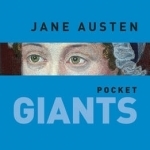
Jane Austen: pocket GIANTS
Book
There's something about Jane...Jane Austen lived only just into her forties, never married, never...
Acanthea Grimscythe (300 KP) rated The Toy Thief in Books
Jan 31, 2019
There are few bonds closer than brother and sister, and we learn that first hand in D. W. Gillespie’s The Toy Thief. Best described by author Michael Patrick Hicks as a “coming-of-age story,” The Toy Thief encompasses the childhood of strong-headed, tomboyish Jack and her brother Andy. Together, the two must thwart a darkness that threatens their livelihood and that of other children around them.
In this creative piece, Gillespie takes a different approach to the ‘why’ behind things that go missing from our homes. We’ve all lost socks, batteries, Tupperware, toys, etc., only to have these items turn up later somewhere else or, in some cases, never to be seen again. But what if all those things were actually going somewhere, rather than simply being lost as a byproduct of human irresponsibility? In The Toy Thief, a dark entity swipes toys from children in order to feed off the happiness and positive energy that thrives within those items. Using these items as a way to sustain its own life force, the Toy Thief soon finds itself running out of options for staying alive, and that’s where things truly take a dark turn in this story.
I found the characters in The Toy Thief to be lacking, honestly. Though I am a fan of the non-traditional use of the name Jack for a female character, the characters in this story are a bit too flat for my taste–and this is perhaps where I made the decision to give this book three stars, rather than four. Jack, for all her tomboyish quirks and fiery attitude (at least in her older years), shows little of that in her child years. Andy, on the other hand, seems to lack personality altogether. The father, despite being the only parent in their lives, plays less of a role in the book than the cat, Memphis. Actually, Memphis seems to be the most fleshed out of all the characters, with what felt like the most genuine reactions to many of the ongoing events in the story.
On the other hand, Gillespie’s ability to generate sympathy for a villain–in this case, the Toy Thief itself–is phenomenal. I would be a liar if I said I didn’t feel so badly for the Toy Thief that I nearly cried on several occasions and, if you’re a sucker for bad guys like I am, that alone is a good reason to delve into this book. The emotional connection that Gillespie creates between the reader and the Toy Thief is heartrending and brilliant.
Gillespie’s novel does a wonderful job when it comes to the creep factor. There are times I felt my skin crawl while reading this book, if only because his ability to write of dread is on point. However, when it comes to descriptions of the Toy Thief, I felt like his arsenal ran a little dry. More often than not, the creature was described the same way, using the same words and to me, this was a bit of a put-off.
Overall, The Toy Thief is not a bad book. It’s not the best that I’ve read, but it was enjoyable and I was able to suck it down fairly quickly. I didn’t feel like I was force-feeding it to myself, either and for those that know me, that’s a good thing. I definitely look forward to more of Gillespie’s work in the future.
I received this book from the publisher in exchange for an honest review.
In this creative piece, Gillespie takes a different approach to the ‘why’ behind things that go missing from our homes. We’ve all lost socks, batteries, Tupperware, toys, etc., only to have these items turn up later somewhere else or, in some cases, never to be seen again. But what if all those things were actually going somewhere, rather than simply being lost as a byproduct of human irresponsibility? In The Toy Thief, a dark entity swipes toys from children in order to feed off the happiness and positive energy that thrives within those items. Using these items as a way to sustain its own life force, the Toy Thief soon finds itself running out of options for staying alive, and that’s where things truly take a dark turn in this story.
I found the characters in The Toy Thief to be lacking, honestly. Though I am a fan of the non-traditional use of the name Jack for a female character, the characters in this story are a bit too flat for my taste–and this is perhaps where I made the decision to give this book three stars, rather than four. Jack, for all her tomboyish quirks and fiery attitude (at least in her older years), shows little of that in her child years. Andy, on the other hand, seems to lack personality altogether. The father, despite being the only parent in their lives, plays less of a role in the book than the cat, Memphis. Actually, Memphis seems to be the most fleshed out of all the characters, with what felt like the most genuine reactions to many of the ongoing events in the story.
On the other hand, Gillespie’s ability to generate sympathy for a villain–in this case, the Toy Thief itself–is phenomenal. I would be a liar if I said I didn’t feel so badly for the Toy Thief that I nearly cried on several occasions and, if you’re a sucker for bad guys like I am, that alone is a good reason to delve into this book. The emotional connection that Gillespie creates between the reader and the Toy Thief is heartrending and brilliant.
Gillespie’s novel does a wonderful job when it comes to the creep factor. There are times I felt my skin crawl while reading this book, if only because his ability to write of dread is on point. However, when it comes to descriptions of the Toy Thief, I felt like his arsenal ran a little dry. More often than not, the creature was described the same way, using the same words and to me, this was a bit of a put-off.
Overall, The Toy Thief is not a bad book. It’s not the best that I’ve read, but it was enjoyable and I was able to suck it down fairly quickly. I didn’t feel like I was force-feeding it to myself, either and for those that know me, that’s a good thing. I definitely look forward to more of Gillespie’s work in the future.
I received this book from the publisher in exchange for an honest review.
Debbiereadsbook (1639 KP) rated Alpha's Embrace (Omega Misfits #3) in Books
Apr 19, 2020
a needed addition but falls far flat of the other two books
Independent reviewer for Gay Romance Reviews, I was gifted my copy of this book.
This is book 3 in the Omega Misfits series, but you don't need to have read Trust No Alpha (book 1) or The Alpha's Fake Mate (book 2) before you read this one. They all take place in the same world, but can totally be read as a stand alone read. I HAVE read them, although I did not write reviews for them as I read them via the Unlimited programme.
And I found THIS one the weakest of the three.
Alphas are supposed to mate with Omegas and ONLY with Omegas. However when 2 Omegas mate, and produce a child, that child is a Sylph. Sylph children are removed from society and kept locked up for their own good. They live with a constant Burn, unlike Alphas who get them regularly, and most do not live into adulthood for going insane.
Misha is such a child. Well, not a child, he is well into adulthood and a bit of an anomoly. He can control his Burn, and be a productive member of society, BUT for the fact he is Sylph. Geo is an Alpha and the new general manager at the facility where Misha lives. When Geo touches Misha without gloves, a bond begins. A bond that is as illegal as it is dangerous. To BOTH of them.
Both Misha and Geo know this is different, whatever they are feeling, but Geo is best able to voice it and rationalise what is happening between them. Misha is, for want of a better explanation, away with the fairies most of the time, but then again, being locked up all the time would make anyone so. Misha KNOWS he is Sylph, he KNOWS he cannot bond, so he doesn't know what this is between him and Geo. He KNOWS he wants Geo, in a way that is different to his usual want (Sylphs want everyone) he just doesn't know what to do. Geo makes the decision, but Misha is given a choice. I liked that it took time for them to act on the bond, to consummate it. They both have thoughts about the other, it just takes time for them to act on it. I've filed it as m-preg, cos it is talked about and does appear in other books in the series, but there isn't any here.
Both guys have a say, in the first person. Misha's voice is a little airy-fairy, like I said and Geo's is very much an Alpha, but he does go a little off the rails, and that comes out of nowhere, to be honest. I found Geo the least liked of the three Alphas in these books and I cannot pinpoint exactly why.
I liked how it all sorted out, but I would have liked a bit of an epilogue, a some-time-later type thing, to catch up on them, and how things pan out after what they did, and whether things had changed for Misha with a fully formed bond.
A nice read, a GOOD addition to the series though and I think it really was needed, a story about the Slyph children, who are talked about in the other books. This book just didn't push my buttons as the other two did, I'm afraid.
3 good solid stars
**same worded review will appear elsewhere**
This is book 3 in the Omega Misfits series, but you don't need to have read Trust No Alpha (book 1) or The Alpha's Fake Mate (book 2) before you read this one. They all take place in the same world, but can totally be read as a stand alone read. I HAVE read them, although I did not write reviews for them as I read them via the Unlimited programme.
And I found THIS one the weakest of the three.
Alphas are supposed to mate with Omegas and ONLY with Omegas. However when 2 Omegas mate, and produce a child, that child is a Sylph. Sylph children are removed from society and kept locked up for their own good. They live with a constant Burn, unlike Alphas who get them regularly, and most do not live into adulthood for going insane.
Misha is such a child. Well, not a child, he is well into adulthood and a bit of an anomoly. He can control his Burn, and be a productive member of society, BUT for the fact he is Sylph. Geo is an Alpha and the new general manager at the facility where Misha lives. When Geo touches Misha without gloves, a bond begins. A bond that is as illegal as it is dangerous. To BOTH of them.
Both Misha and Geo know this is different, whatever they are feeling, but Geo is best able to voice it and rationalise what is happening between them. Misha is, for want of a better explanation, away with the fairies most of the time, but then again, being locked up all the time would make anyone so. Misha KNOWS he is Sylph, he KNOWS he cannot bond, so he doesn't know what this is between him and Geo. He KNOWS he wants Geo, in a way that is different to his usual want (Sylphs want everyone) he just doesn't know what to do. Geo makes the decision, but Misha is given a choice. I liked that it took time for them to act on the bond, to consummate it. They both have thoughts about the other, it just takes time for them to act on it. I've filed it as m-preg, cos it is talked about and does appear in other books in the series, but there isn't any here.
Both guys have a say, in the first person. Misha's voice is a little airy-fairy, like I said and Geo's is very much an Alpha, but he does go a little off the rails, and that comes out of nowhere, to be honest. I found Geo the least liked of the three Alphas in these books and I cannot pinpoint exactly why.
I liked how it all sorted out, but I would have liked a bit of an epilogue, a some-time-later type thing, to catch up on them, and how things pan out after what they did, and whether things had changed for Misha with a fully formed bond.
A nice read, a GOOD addition to the series though and I think it really was needed, a story about the Slyph children, who are talked about in the other books. This book just didn't push my buttons as the other two did, I'm afraid.
3 good solid stars
**same worded review will appear elsewhere**
Lee (2222 KP) rated Scary Stories to Tell in the Dark (2019) in Movies
Aug 21, 2019
Obviously I'm not familiar with the Scary Stories To Tell In The Dark books that this movie is based on - a series of three books containing short horror stories for children and drawing heavily on urban legend and folklore for it's subject matter, first published in 1981. Apparently, the series is listed by the American Library Association as being the most challenged series of books from the 1990s, with complaints relating to the violence and disturbing subject matter portrayed within them not being suitable for the children it was aimed at. The illustrations within the book also drew criticism, vividly portraying the nightmare creatures and scenes contained within the stories. Perfect material for a movie version!
That movie version comes from Troll Hunter director André Øvredal and producer/co-writer Guillermo del Toro and attempts a Goosebumps style movie, taking some of the better known stories from the 80+ contained within the books and weaving them into a larger narrative, set in Mill Valley Pennsylvania during the fall of 1968.
It's Halloween and a group of teens are preparing to go out for an evening of trick or treating - applying makeup, getting into their costumes, fishing in the toilet for turds in preparation for a Halloween trick. They head out on their bikes but it's not long before they run into some idiot jocks from their local school, and that turd trick suddenly comes in handy! We've already been introduced to the jocks earlier in the movie, out in a cornfield where they were hitting a creepy looking scarecrow about the head with a baseball bat. Yep, they're certainly going to regret that a little bit later on!
The teens manage to escape the jocks, working their way into a drive through movie that's showing "Night of the Living Dead" and into the car of another teen called Ramón. The group strike up a bond with Ramón after he helps them out and they all decide to go and break into an abandoned local house which is reportedly haunted. They find their way into the basement where legend has it that Sarah Bellows, the daughter of a prominent local family, was locked away in the late 1800s. Horror nerd Stella comes across a book containing short scary stories that were written in blood by Sarah, and she decides to take it with them. As Stella opens the book’s pages, she sees that Sarah’s stories are literally beginning to write themselves - stories that put her friends in some pretty unpleasant situations, stories which immediately become reality the moment they're written. As Stella later puts it, "You don't read the book, the book reads you".
The setup and the scenarios within each story are enjoyable enough and are certainly creepy, however the execution doesn't always work so well and the payoffs aren't quite as scary as I would have liked. The movie also suffers from some slightly dodgy CGI at times too, which doesn't help. That said, I thoroughly enjoyed the final story, and the return to the house in order to try and stop Sarah Bellows worked really well for me. It all ends with a definite opportunity for a sequel and with plenty more scary stories to choose from within the source material, I'm sure we'll be seeing another one soon. Scary Stories to Tell in the Dark taps nicely into the "It" and "Stranger Thing" vibe, with it's group of teens rising up together against evil, and despite it's faults I did have a lot of fun with it. I'm definitely interested in seeing more.
That movie version comes from Troll Hunter director André Øvredal and producer/co-writer Guillermo del Toro and attempts a Goosebumps style movie, taking some of the better known stories from the 80+ contained within the books and weaving them into a larger narrative, set in Mill Valley Pennsylvania during the fall of 1968.
It's Halloween and a group of teens are preparing to go out for an evening of trick or treating - applying makeup, getting into their costumes, fishing in the toilet for turds in preparation for a Halloween trick. They head out on their bikes but it's not long before they run into some idiot jocks from their local school, and that turd trick suddenly comes in handy! We've already been introduced to the jocks earlier in the movie, out in a cornfield where they were hitting a creepy looking scarecrow about the head with a baseball bat. Yep, they're certainly going to regret that a little bit later on!
The teens manage to escape the jocks, working their way into a drive through movie that's showing "Night of the Living Dead" and into the car of another teen called Ramón. The group strike up a bond with Ramón after he helps them out and they all decide to go and break into an abandoned local house which is reportedly haunted. They find their way into the basement where legend has it that Sarah Bellows, the daughter of a prominent local family, was locked away in the late 1800s. Horror nerd Stella comes across a book containing short scary stories that were written in blood by Sarah, and she decides to take it with them. As Stella opens the book’s pages, she sees that Sarah’s stories are literally beginning to write themselves - stories that put her friends in some pretty unpleasant situations, stories which immediately become reality the moment they're written. As Stella later puts it, "You don't read the book, the book reads you".
The setup and the scenarios within each story are enjoyable enough and are certainly creepy, however the execution doesn't always work so well and the payoffs aren't quite as scary as I would have liked. The movie also suffers from some slightly dodgy CGI at times too, which doesn't help. That said, I thoroughly enjoyed the final story, and the return to the house in order to try and stop Sarah Bellows worked really well for me. It all ends with a definite opportunity for a sequel and with plenty more scary stories to choose from within the source material, I'm sure we'll be seeing another one soon. Scary Stories to Tell in the Dark taps nicely into the "It" and "Stranger Thing" vibe, with it's group of teens rising up together against evil, and despite it's faults I did have a lot of fun with it. I'm definitely interested in seeing more.
Acanthea Grimscythe (300 KP) rated The Fall of Lisa Bellow in Books
May 16, 2018
Though wonderfully written, <i>The Fall of Lisa Bellow</i> is not what I expected it to be. That isn't to say that it isn't a good read, -- it most definitely is -- but because it was not as I had envisioned it, it took me much longer to get through the book than I had anticipated.
After school one day, thirteen-year-old Meredith Oliver decides she is in dire need of a large root beer as a reward to herself for completing her test in Algebra II. While there, she encounters Lisa Bellow, a popular girl she's grown up with and cannot stand. Any interaction that might have occurred between the two is cut short when an armed and masked man comes into the sandwich shop to rob it. Then, as an afterthought, he kidnaps Lisa, leaving Meredith and her family to deal with the trauma.
The Oliver family is horrible, though. Possessing attitudes that are largely and entirely focused on themselves, the main characters from whose perspective we read, Meredith and her mother, Claire, are absolutely unlovable. While not on the level of Gone Girl bad, they do serve as stark reminders of how low humans can sink in their day to day interactions. I do feel that Perabo fairly accurately portrayed the mind of a thirteen-year-old girl, at least, from the mindset of what those my age may have experienced in school. I can't really speak for today's children, as, contrary to the belief of our own parents, that things never change, we all know they do. In that regard, the slut-shaming was almost unbearable. It seemed the only reason Meredith had to dislike Lisa was her good looks and poor attitude, to which she responded by constantly referring to her in derogatory terms. Personally, I cannot recall referring to girls in my eighth grade class as sluts: in fact, I don't even remember which girls were popular and pretty.
Given that a young girl has been kidnapped, as a reader, you might expect the story to also focus a bit on finding said victim. Instead, it takes a unique approach by focusing not on the victim and her family, but rather the girl that was not kidnapped and her own, which is far more dysfunctional than it might seem. Some of that can be attributed to the two tragedies they've faced back to back, while the rest likely has to do with how the characters simply are. The plot follows Meredith's changes through what she has experienced, providing readers with a coming-of-age story, rather than something that is suspenseful. There's really not a whole to guess, and even as the book comes to a conclusion, there are questions that are left unanswered, issues that are unaddressed, and ultimately, bridges that are not mended.
<i>The Fall of Lisa Bellow</i> is beautiful, even if it isn't really much of a suspense. If you're looking for something on the more tame side of abduction tales, it fits that bill. I would like to thank NetGalley, Simon & Schuster, and the author for providing me with an advanced copy in exchange for an honest, unbiased review.
After school one day, thirteen-year-old Meredith Oliver decides she is in dire need of a large root beer as a reward to herself for completing her test in Algebra II. While there, she encounters Lisa Bellow, a popular girl she's grown up with and cannot stand. Any interaction that might have occurred between the two is cut short when an armed and masked man comes into the sandwich shop to rob it. Then, as an afterthought, he kidnaps Lisa, leaving Meredith and her family to deal with the trauma.
The Oliver family is horrible, though. Possessing attitudes that are largely and entirely focused on themselves, the main characters from whose perspective we read, Meredith and her mother, Claire, are absolutely unlovable. While not on the level of Gone Girl bad, they do serve as stark reminders of how low humans can sink in their day to day interactions. I do feel that Perabo fairly accurately portrayed the mind of a thirteen-year-old girl, at least, from the mindset of what those my age may have experienced in school. I can't really speak for today's children, as, contrary to the belief of our own parents, that things never change, we all know they do. In that regard, the slut-shaming was almost unbearable. It seemed the only reason Meredith had to dislike Lisa was her good looks and poor attitude, to which she responded by constantly referring to her in derogatory terms. Personally, I cannot recall referring to girls in my eighth grade class as sluts: in fact, I don't even remember which girls were popular and pretty.
Given that a young girl has been kidnapped, as a reader, you might expect the story to also focus a bit on finding said victim. Instead, it takes a unique approach by focusing not on the victim and her family, but rather the girl that was not kidnapped and her own, which is far more dysfunctional than it might seem. Some of that can be attributed to the two tragedies they've faced back to back, while the rest likely has to do with how the characters simply are. The plot follows Meredith's changes through what she has experienced, providing readers with a coming-of-age story, rather than something that is suspenseful. There's really not a whole to guess, and even as the book comes to a conclusion, there are questions that are left unanswered, issues that are unaddressed, and ultimately, bridges that are not mended.
<i>The Fall of Lisa Bellow</i> is beautiful, even if it isn't really much of a suspense. If you're looking for something on the more tame side of abduction tales, it fits that bill. I would like to thank NetGalley, Simon & Schuster, and the author for providing me with an advanced copy in exchange for an honest, unbiased review.
Kristy H (1252 KP) rated Not That I Could Tell in Books
Mar 25, 2018
Good women's fiction tale but nothing new or surprising here
In the quiet town of Yellow Springs, Ohio, the disappearance of one of its residents, Kristin, is a big deal. She vanishes after an evening with several of her neighbors, filled with wine and conversation around the fire pit. She also takes her young twins, Aaron and Abigail. Left behind is her soon-to-be-ex-husband, Paul, a well-known ob-gyn. A window in Kristin's house is broken and some of her belongings missing. But otherwise, there is no trace or idea about where she and the twins have gone. Paul accuses her of disappearing with money owed to him. Kristin's neighbors, especially her next-door neighbor, Clara, for whom Kristin's disappearance hits a bit close to home, and Izzy, a single woman who recently moved to the neighborhood to get away from her own issues, are baffled. They realize how little they knew about their friend--and that they have no idea where she's gone.
This was an interesting one. From the beginning, this book felt familiar to me--the "something happened" after a barbecue reminiscent of Truly Madly Guilty and others I'd read lately. I was sick while reading, so I had trouble keeping the women and their backstories separate for a while. Too much cold medicine and fatigue, probably.
The book is told from various viewpoints--mainly Clara and Izzy. I was always expecting there to be more: some unexpected surprise or twist, but there never really was. The ending threw in a bit of one, but it wasn't quite what I was expecting. Still, there is a tenseness to the novel, and it can certainly be creepy at times. The novel also does a good job of capturing kids and parenthood--the weariness of the day-to-day of parenting small children, for instance. I also liked how it captured how preschools can be a microcosm of life and small towns and such a cesspool of stress and gossip.
This one moved slowly for me. I liked the characters, but wasn't drawn to them. I had some sympathy for Izzy, but also questioned her motives a lot. I should have been more drawn to Clara, but wasn't. Perhaps because, while I have small children, I don't have the same sort of neighborhood tribe as these women? I'm not sure. Not even the token lesbian neighbors could do it, though I appreciated the effort.
Overall, the story was good, but never offered the big surprise I was waiting for. Characters are interesting but I was never fully pulled into their stories.
I received a copy of this novel from the publisher and Netgalley in return for an unbiased review; more at justacatandabookatherside.blogspot.com.
This was an interesting one. From the beginning, this book felt familiar to me--the "something happened" after a barbecue reminiscent of Truly Madly Guilty and others I'd read lately. I was sick while reading, so I had trouble keeping the women and their backstories separate for a while. Too much cold medicine and fatigue, probably.
The book is told from various viewpoints--mainly Clara and Izzy. I was always expecting there to be more: some unexpected surprise or twist, but there never really was. The ending threw in a bit of one, but it wasn't quite what I was expecting. Still, there is a tenseness to the novel, and it can certainly be creepy at times. The novel also does a good job of capturing kids and parenthood--the weariness of the day-to-day of parenting small children, for instance. I also liked how it captured how preschools can be a microcosm of life and small towns and such a cesspool of stress and gossip.
This one moved slowly for me. I liked the characters, but wasn't drawn to them. I had some sympathy for Izzy, but also questioned her motives a lot. I should have been more drawn to Clara, but wasn't. Perhaps because, while I have small children, I don't have the same sort of neighborhood tribe as these women? I'm not sure. Not even the token lesbian neighbors could do it, though I appreciated the effort.
Overall, the story was good, but never offered the big surprise I was waiting for. Characters are interesting but I was never fully pulled into their stories.
I received a copy of this novel from the publisher and Netgalley in return for an unbiased review; more at justacatandabookatherside.blogspot.com.

LearnEnglish Kids: Playtime
Education and Entertainment
App
Read and watch fun animated songs and stories to help your child develop in key areas in English:...
